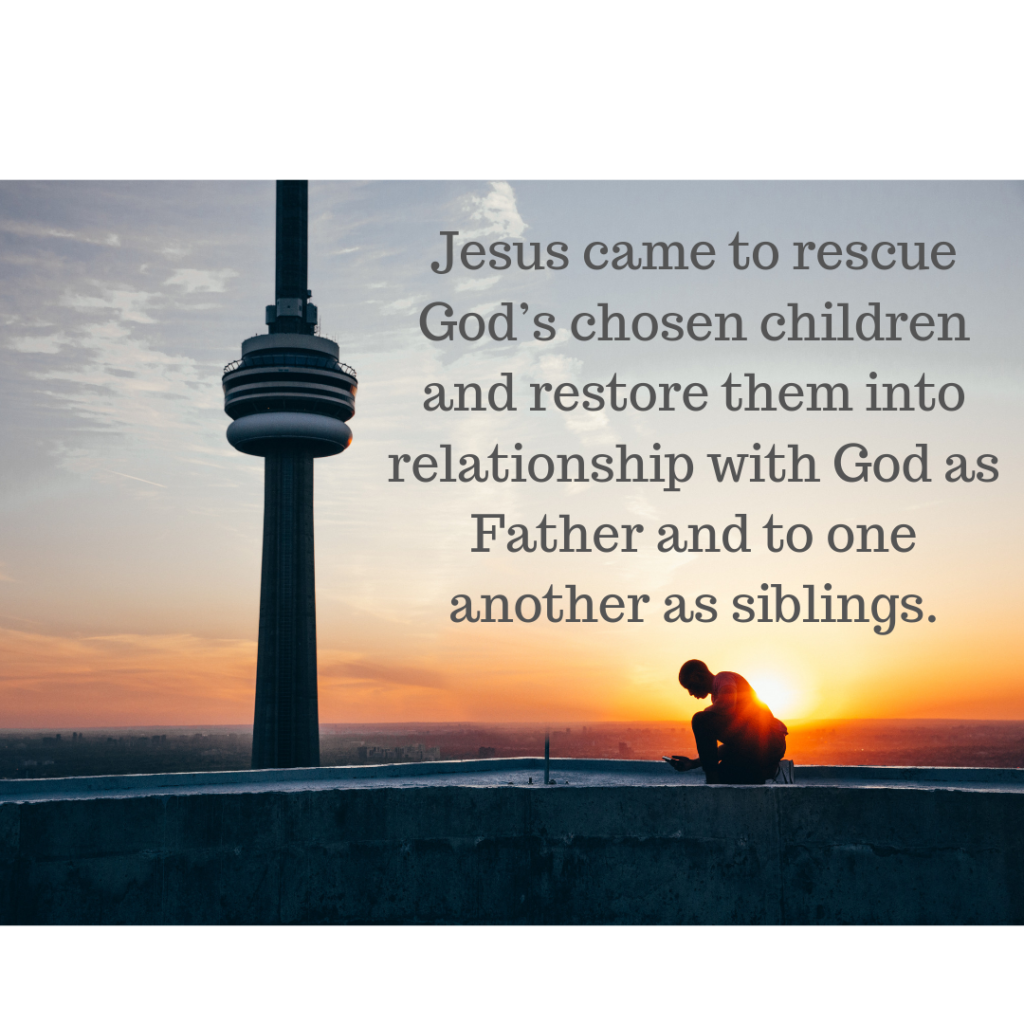Many of us tend to think that the focus of the Christian Gospel is solely on the individual: Jesus came to save individuals from sin and bring them to personal salvation. This is true, but it’s also incomplete. Jesus came to rescue God’s chosen children and restore them into relationship with God as Father and to one another as siblings. Jesus came to redeem his people collectively. Through faith in Christ’s death and resurrection, we are reconciled into the community of faith, the family of God, his people, the church. Look at how this is expressed in Scripture:
“But you are a chosen race, a royal priesthood, a holy nation, a people for his own possession, that you may proclaim the excellencies of him who called you out of darkness into his marvelous light. Once you were not a people, but now you are God’s people; once you had not received mercy, but now you have received mercy.”
1 Peter 2:9-10

Understanding that God has saved “a people for his own possession” is the foundation for strong, authentic, loving community in the church. Yet, we face many obstacles to Christ-centered, biblical community in the church. Consider the following:
- An Over-Emphasis on Personal Salvation: American evangelicalism has so emphasized the importance of a personal commitment of faith, Jesus as your personal Lord and Savior, we’ve inadvertently lost sight of the communal aspect to our faith. God has saved a people. God is our Father, and he has adopted us into a household with other siblings.
- American Individualism: The self-sufficient pioneer, the cowboy who doesn’t need anyone, is still the hero of our culture. At the root of this is our sinful pride that doesn’t want to admit weakness, be vulnerable about our struggles, or rely on others.
- The Busyness of Modern Life: A hectic, over-scheduled life means most of our energy is spent investing in and caring for our own needs and those of our immediate family. This means we have little time and less energy for relationships in the church.
- Superficial Relationships: Due in part to the first three factors, our relationships are often surface level. We have many colleagues and acquaintances, but few true friendships. We’ve become uncomfortable with seeking authentic relationships in the church and ill-equipped to provide authentic relationship.
- A Broken Home Life: For many people, the idea of community in the family of faith just recalls a world of pain from a broken home life – neglectful parents, abusive fathers, pushy mothers, angry siblings, missed expectations, and lasting hurt. Why would I want a church family when family just means pain?
- A Strong Home Life: Unlike in some cultures, where following Jesus means getting kicked out of your home, for many of us a strong faith in Christ is what binds together our nuclear family. When your home life is a place of loving relationships and encouragement, you may feel no need (or no opportunity) to look for deep community in the church.
- Past Hurt in the Church: People who have been hurt and wronged by Christians in the church are often hesitant to invest in authentic Christian community. But offense, misunderstanding, hurt, sin, and brokenness will always be in the church because sinful people are in the church. By God’s grace, we must learn to live in this messy reality together.
Yes, these seven obstacles are formidable, but the biblical vision for community is worth investing in. By God’s grace and the Spirit’s power, we can and should find authentic, loving community in the church. A Christian invested in the local church is the only kind of Christian Scripture shows us!
Listen to a recent sermon related to this blog: Community & Investment

0 Comments